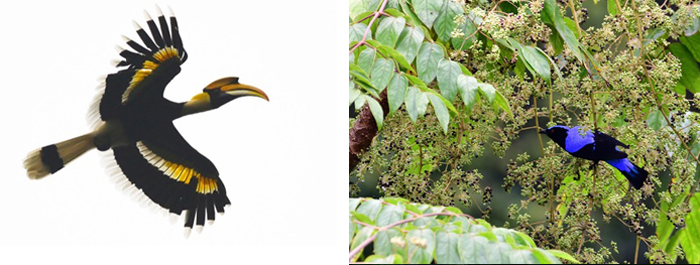
Geopark is a model that could tell the Earth’s stories through geological tourism. It is a place for visitors to learn about the origin and structural characteristics of the geomorphology. Also, this model promotes education, awareness raising for locals and visitors in order to live in harmony with nature and appreciate the values and resources of the Creation.
Located in Dak Nong province, in the southwest of the Central Highlands and at the end of Truong Son mountain range, DNAUGGp has the boundary stretching over 5 districts of Krong No, Cu Jut, Dak Mil, Dak Song, Dak G'Long and Gia Nghia town.
As a part of the poetic majestic M'Nong plateau, DNAUGGp is the convergence of typical geological, archaeological, cultural values and biodiversity characteristics of the region.
Values of geology and geomorphology
The most special feature of DNAUGGp is the volcanic cave system in basalt rock, distributed in the area of Dray Sap - Chu R'Luh, discovered since 2007. This volcanic cave system has been recorded as the longest one in the Southeast Asian by the Japan Volcanic Cave Association in the aspects of scale, length and uniqueness. Insides the caves there are many secrets about the mechanism of creation, mineral complexes, biodiversity and archaeological sites ...
 |
| Typical geological landscapes in the DNAUGGp; Photo: DNAUGGp MB |
In the Geopark's area, there are also ancient geological heritage such as ammonites, petrified woods; high mountain ranges with topographical features, romantic natural lakes (Ea Sno lake, Truc lake, West lake...), unique and typical craters (Nam Blang, Nam Kar, Bang Mo....) and a system of beautiful and majestic waterfalls (Gia Long, Trinh Nu and Dray Sap...)
In addition, DNAUGGp is also diverse and rich in mines of bauxite, antimony, tin placer deposits, puzzolite, precious stones; especially opal - chalcedon semi-precious stones in large size.
Values of Archaeology
The archaeological findings of prehistoric people in a relatively high density in the volcanic cave area of the Geopark have attracted the attention of many domestic and foreign researchers and visitors.
Their findings inside the caves included stone tools such as dish-shaped tools, short axes, blade-ground short axes, oval axes and blade ground oval axes, flake tools, stone flakes, stone slabs; anvils, graters, pestles, etc., hand-fitting sharp quartzite stones and pieces of loess. Also, the scientists found pottery of various thicknesses, mostly fired at low temperature, crumbly, made of fine sandy loam with varied patterns, such as dot-dash, dotted line, dashed line, twisted rope, etc.
Furthermore, animal teeth, bones, fragments thereof and even the presence of prehistoric human bones were found.
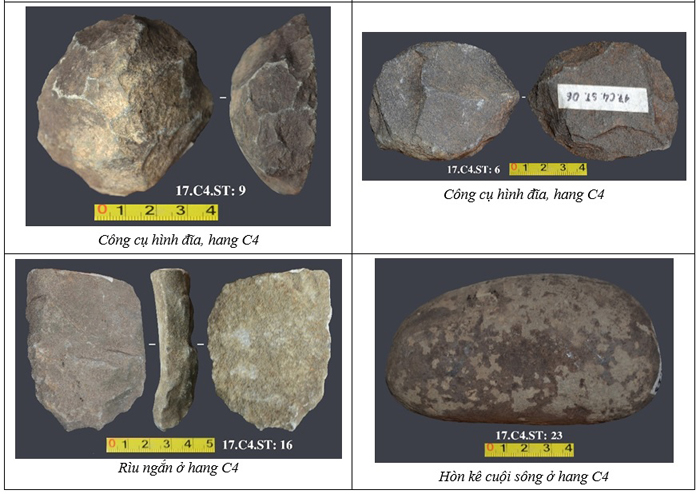 |
| Stone tools - Photo: DNAUGGp MB |
Values of culture
Besides, DNAUGGp owns historical depth with tangible and intangible cultural values of Space of Gong Culture – UNESCO Representative Intangible Cultural Heritage of Humanity, Special national monument of Ho Chi Minh Trail and 5 other national-level relics, such as: Dak Mil Prison, Nam Nung partisan base, historical monument of N'Trang Gưh, Victory Hill 722 - Dak Sak and the North-South military force contact.
Dak Nong Geopark also enables visitors to experience the diverse and abundant spiritual life of ethnic groups, clearly reflected through folk beliefs, rituals, folk arts... which should be well preserved and promoted.
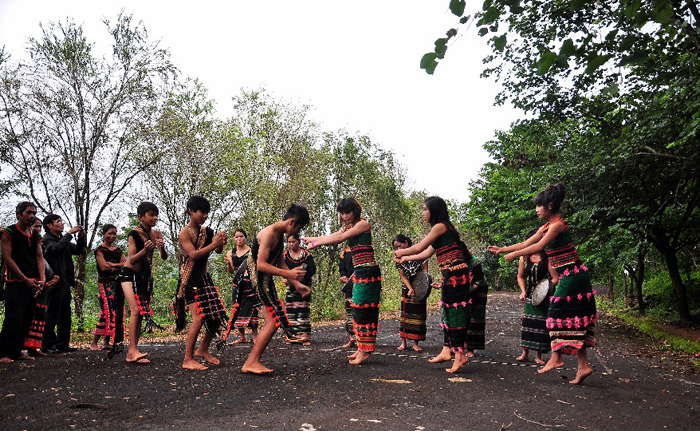 |
| The space of gong culture – Photo: DNAUGGp MB |
Values of biodiversity
Nam Nung Nature Reserve, Ta Dung National Park, Dray Sap landscape and special-use forest and a southern part of Yok Don National Park (Ea Po commune, Cu Jut district) are the places where keep the biodiversity values of Dak Nong Geopark.
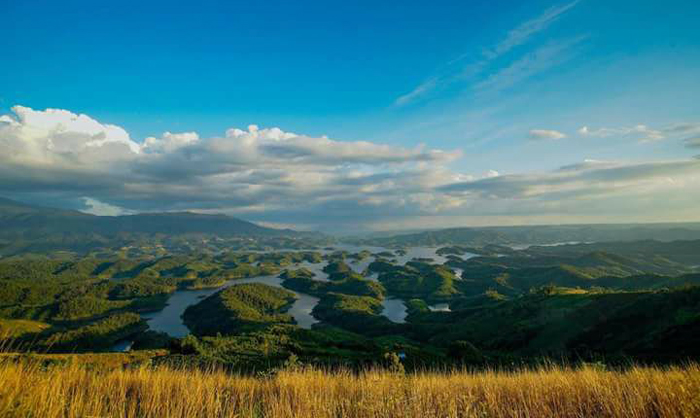 |
| Ta Dung National Park – Photo: DNAUGGp MB |
The flora and fauna system in the Geopark is very rich with many varieties, precious and rare species. Of which, many are listed in Vietnam Red Book and the World's Red Book, such as: Elephants, tigers, bison and many primate (Trachypithecus francoisi, Pygathrix nigripes, reptiles, Great Hornbill, Germain's Peacock Pheasant) ...; Trigonobalanus verticillata, Pterocarpus macrocarpus, Xylia xylocarpa... This is a great potential for the geopark to develop eco-tourism, biodiversity research... attracting many scientists as well as domestic and foreign tourists to visit and study.
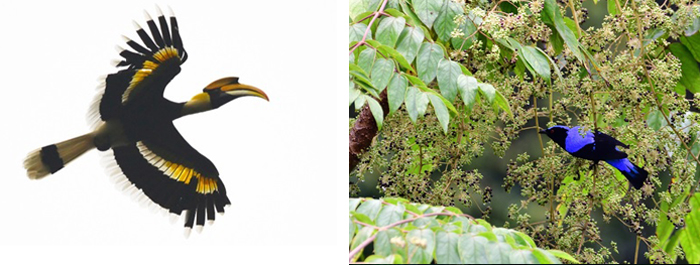 |
| Biodiversity in Dak Nong Geopark – photo: DNAUGGp MB |
With the above typical values, it cannot be denied that Dak Nong Geopark is an invaluable property, not only of Dak Nong province but also of Vietnam and of the humanity. Therefore, the development of Dak Nong Geopark into UNESCO Gobal Geopark is a right direction of the province to preserve and promote heritage values while contributing to socio-economic sustainable development.
Translated by Bach Van